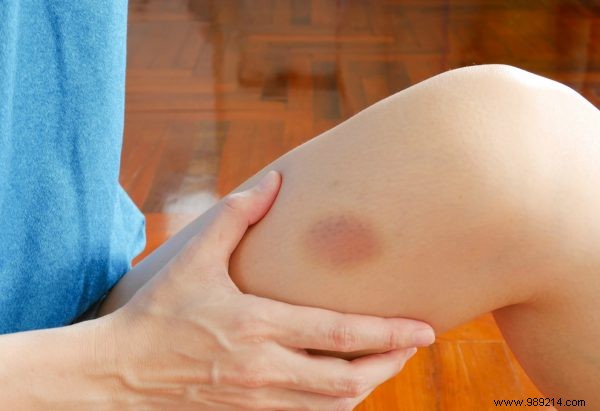
Do unsightly bruises appear frequently on your skin? Many wonder if women are more prone to them than men. To clarify, we spoke with Karina Meijer, an experienced internist-hematologist at the University Medical Center in Groningen.
Karina Meijer explains: "A bruise forms under the skin when something external—like bumping into an object—damages a blood vessel, causing blood to leak out. This is common with healthy vessels. However, fragile vessels or thinner blood from certain conditions can lead to easier bruising. Over time, bruises change color as the blood breaks down and the vessel heals. They may appear to worsen initially, but that's often due to gravity pulling the blood downward, as seen with a black eye that spreads and shifts to yellow-green hues."
Related reading: '4 solutions against bruises'
"Bruising frequency varies individually and isn't scientifically proven to differ significantly by gender. Women tend to consult doctors more promptly—often due to concern over underlying issues or cosmetic concerns. Hormonal factors are sometimes suggested, but evidence is lacking; oral contraceptives don't notably increase or decrease bruising. Studies in children show boys bruise more, likely from higher physical activity levels," says Meijer.
"Hereditary conditions like von Willebrand disease predispose people to easier bruising, as do blood thinners. Aging thins the skin and weakens vessels, increasing susceptibility—it's the skin, not the blood, at fault. I recommend evaluation if bruising accompanies other bleeding (e.g., post-surgery or heavy periods) or if someone suddenly bruises extensively without prior history. Prevention means less activity, which I don't advise; better to embrace them as part of life."